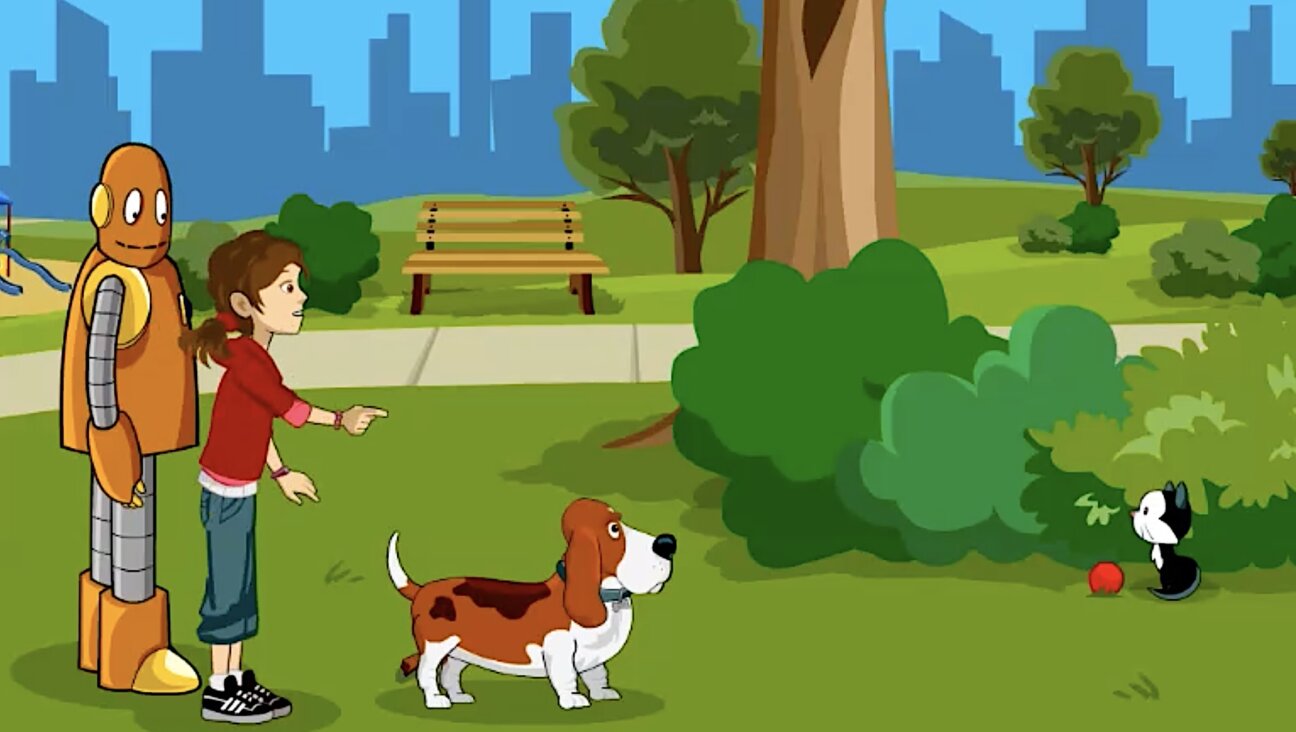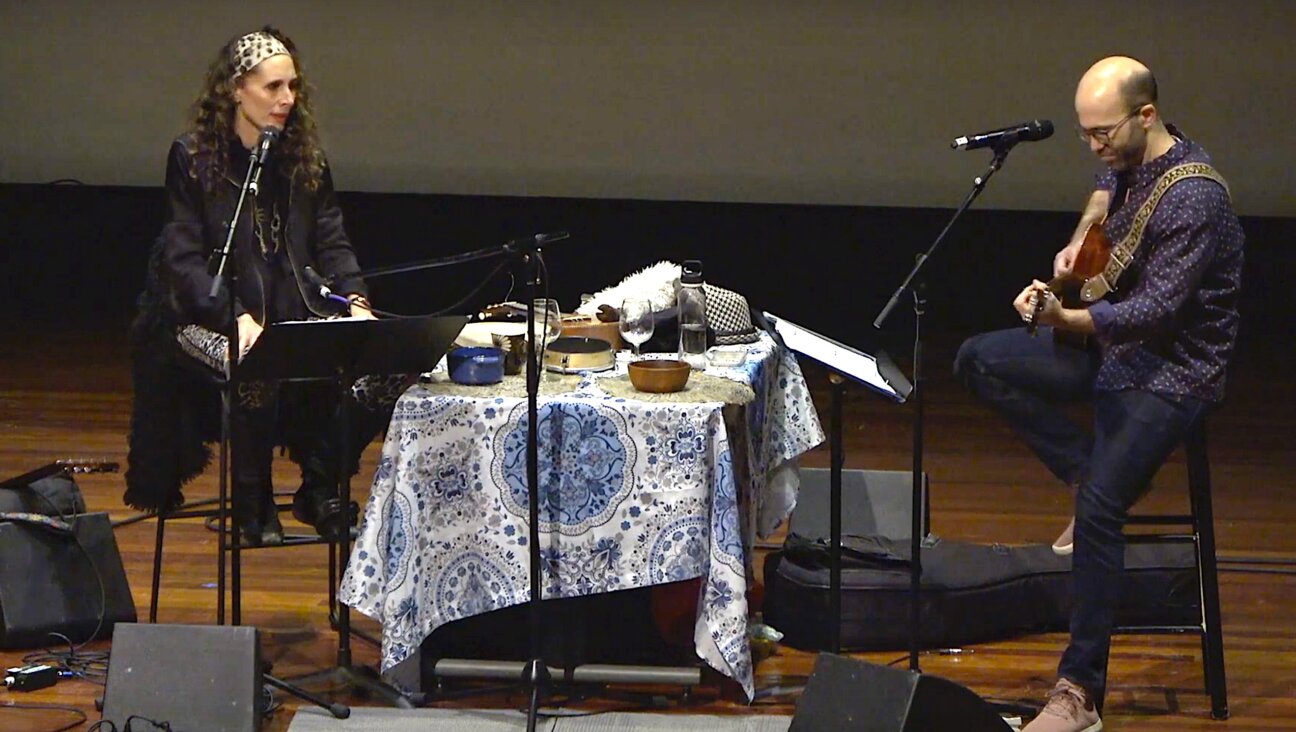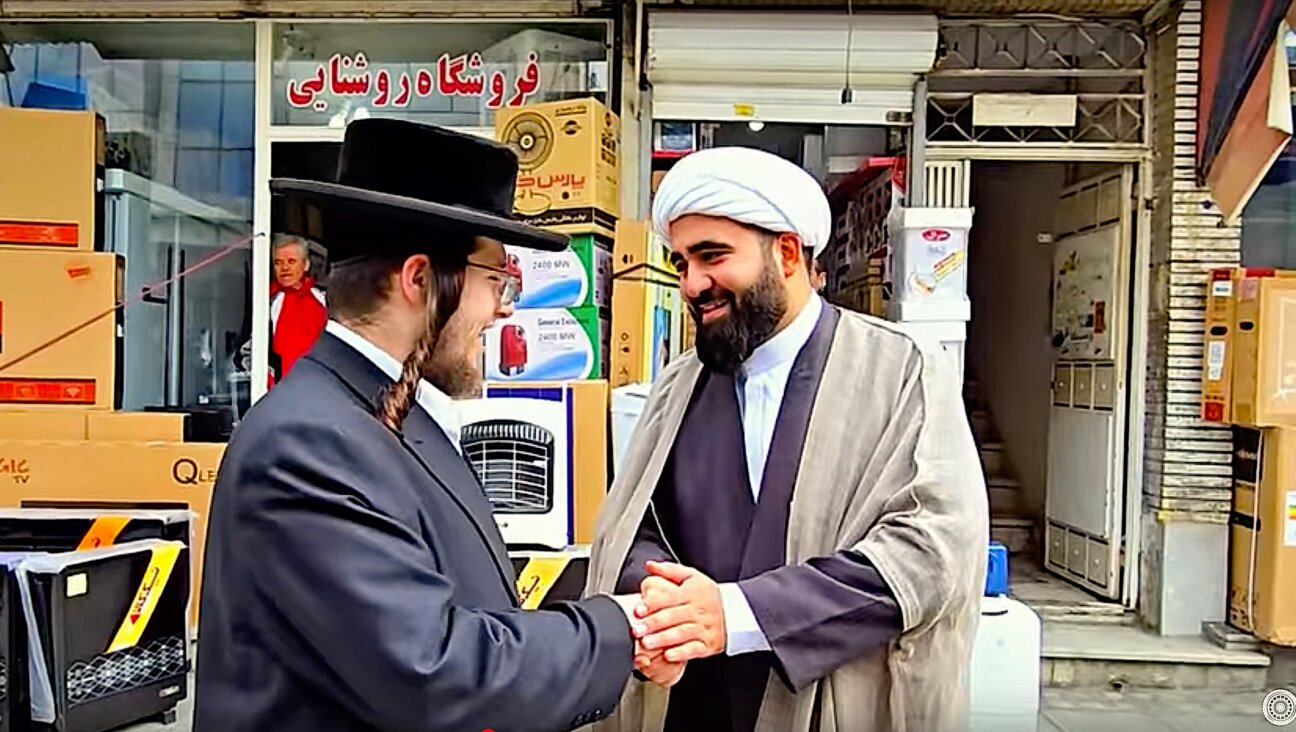New musical will highlight the remarkable creativity of Jews in the ghettos and camps
After the war, partisan fighter Shmerke Kaczerginski visited displaced persons camps and recorded the songs that survivors shared with him.
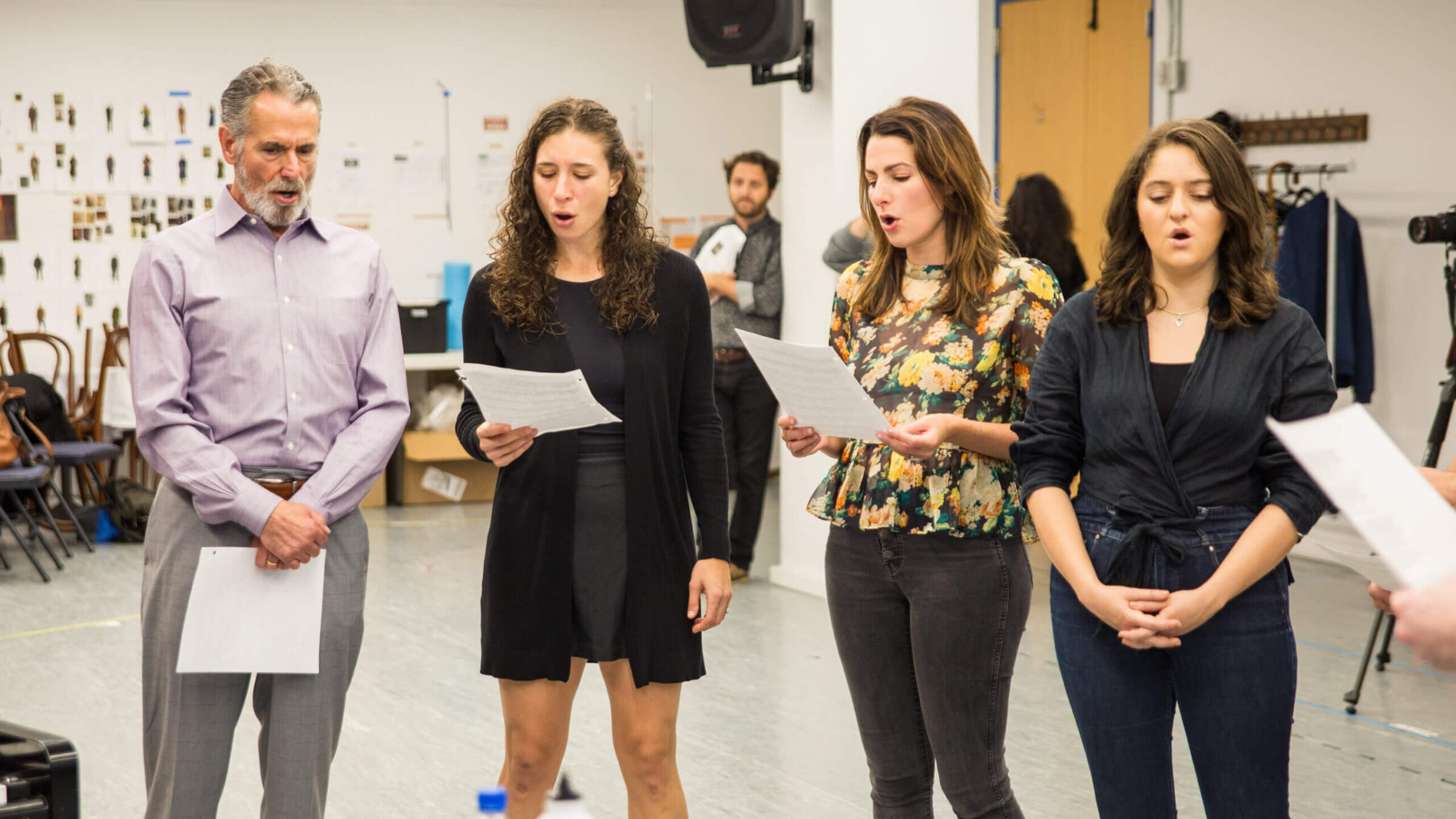
At a recent rehearsal of the new musical Amid Falling Walls, opening on Nov. 14. Photo by National Yiddish Theatre Folksbiene
A musical might not be what jumps to mind when thinking about the Holocaust, but Tsvishn Falndike Vent (Amid Falling Walls) — a new production of the National Yiddish Theatre Folksbiene — aims to bring to light the music and creativity that was an integral part of spiritual resistance in the ghettos, work camps and concentration camps.
The show will star Steven Skybell, who played Tevye in the Folksbiene’s production of Fiddler on the Roof in Yiddish; Daniella Rabbani, Mikhl Yashinsky and half a dozen other professional singers.
The concept for the show originated with its associate artistic director, Matthew “Motl” Didner. For years, Didner was drawn to the album Ghetto Tango: Wartime Yiddish Theater, which was created by the Folksbiene’s artistic director Zalmen Mlotek and the iconic Yiddish singer and activist Adrienne Cooper. “I listened to Ghetto Tango every day, on the subway, everywhere. It opened a new chapter for me on how to think about the Holocaust. Elie Wiesel and Primo Levi wrote after the war. These songs were written during the war, even as it was happening. They were performed in the streets of the ghettos and in cabarets, some openly, some in secret.”
The songs represent frustration, fear, protest, the desire for life, hope and consolation, Didner added. “It gave people something they needed, whether it was an hour of distraction or an invaluable sense of spiritual well-being.”
Zalmen Mlotek, the musical director who curated the material for Amid Falling Walls with his son Avram Mlotek, said that the goal was to bring these pieces to a larger audience. “There’s a lot of focus on how they died. This is about how they lived,” Mlotek said. “You can’t listen to these songs without being wrenched.”
Ghetto Tango is one of three albums whose songs will be performed in Amid Falling Walls. The other two are Remember the Children: Songs For and By Children of the Holocaust (the United States Holocaust Museum, 1991) and Heroes and Poets (2000).
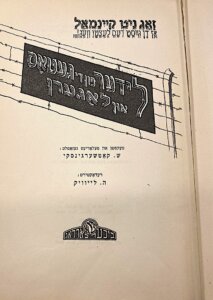
Central to both Ghetto Tango and Amid Falling Walls is the work of Shmerke Kaczerginski — a partisan fighter, Yiddish poet, musician and cultural activist in Vilna. Born in 1908, he was particularly active in the cultural activities of the Vilna Ghetto. After the war, he spent years collecting songs from the ghettos and camps, visiting displaced persons camps and recording songs and folklore that survivors shared with him.
In 1947 he contributed a section of ghetto and partisan songs to the anthology Undzer Gezang (Our Song), the first Jewish songbook printed in post-war Poland. In 1948, he edited a book of Holocaust songs, Lider fun di getos un lagern (Songs of the Ghettos and Concentration Camps) that was published in New York.
Kaczerginski later settled in Argentina, where he was killed in a plane crash at age 45.
Amid Falling Walls features 25 songs, including Kaczerginski’s own song, Yid du Partizaner (Jewish Partisan Song), with its stirring melody and lyrics depicting Jews fighting in the forests, and Mues-mues (Money, money) — a biting satire based on the American jazz tune Ja-Da. The word mues or moes was often used by Jews instead of the more common term gelt if they needed a word that non-Jews wouldn’t understand.
Didner said that it’s a protest song, but not against the Nazis. “It’s about corrupt Ghetto administration and profiteers — not something one typically hears.”
It sounds like “a jazzy night club song, but created in the Warsaw Ghetto,” Mlotek said.
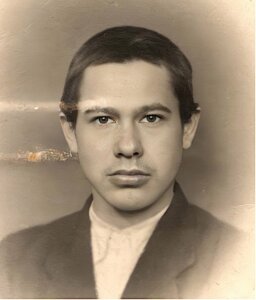
Other songs in the program include the tango Moyshe halt zikh (Moyshe, Hold On) written by Kasriel Broydo, a songwriter and singer who played a key role in the theater of the Vilna Ghetto. He was seized by the Gestapo days before completing the song.
Another song performed in the show is Peshe fun Reshe (Peshe from the town of Reshe), one of the last revues in the Vilna Ghetto theater. Mlotek described it as having echoes of Puccini.
The visual component of the show includes images found in playbills, ads and other materials from the 1930s prewar period, along with a handful of images of actual performances in the ghettos and street scenes in Vilna and Warsaw.
For Avram Mlotek — an ordained Orthodox rabbi, writer and social worker — honoring Kaczerginski’s legacy was what made him decide to work on the show.
“After the war, Kaczerginski immersed himself in his people’s trauma instead of building a new life for himself,” Avram said. “I feel a great responsibility to honor that, and to introduce his work to a new audience.
“Some people unfamiliar with Holocaust history might ask: ‘Why didn’t the Jews fight back?’” the younger Mlotek said. “These songs are such fierce expressions of Yiddishkeyt and our humanity. This is fighting back. The whole idea of making art under those circumstances is subversive.”
The musical Amid Falling Walls will run from Nov. 14 until Dec. 10. For tickets, go here.








